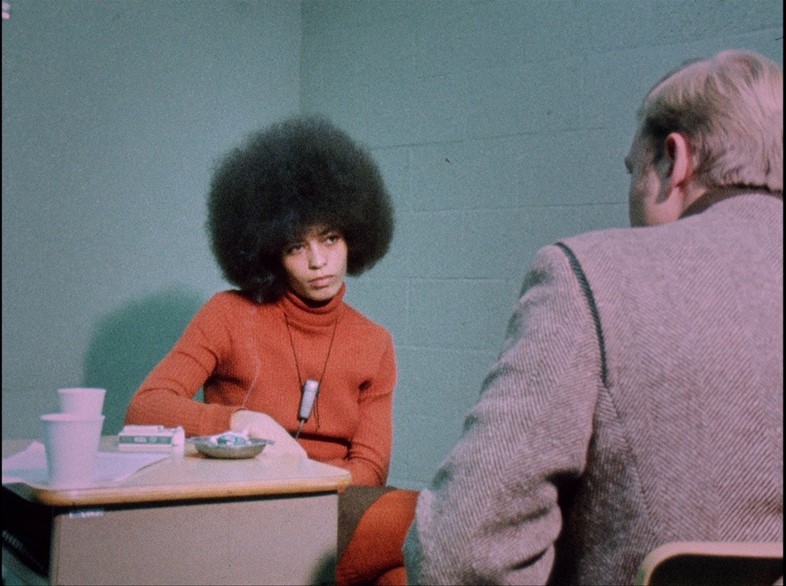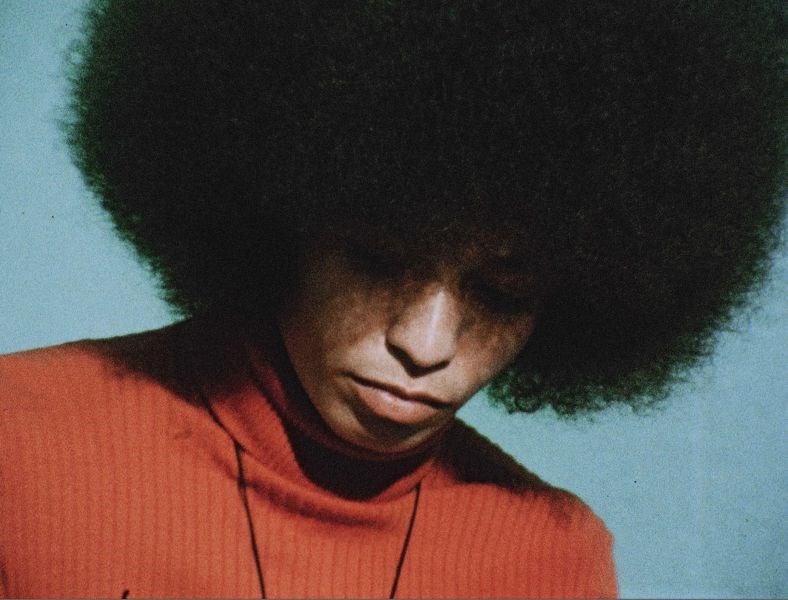To mark Juneteenth – also known as Liberation Day in the USA – a selection of powerful quotes from Angela Davis, the professor and activist who has long campaigned for freedom for black people
June 19 is celebrated annually across America as Juneteenth, a holiday that marks the freedom of formerly enslaved African Americans: on June 19, 1865, it was proclaimed that all slaves in Texas, the final Confederate state to enforce the Emancipation Proclamation at the end of the Civil War, were now free. In the more than 150 years since, Juneteenth – also known as Freedom Day or Liberation Day – has been celebrated by African American communities throughout the USA, and many are campaigning for the day to become an official national holiday.
In 2020, Juneteenth arrives amid the context of the largest civil rights protests across the world since the 1960s. This year’s protests were sparked by the murder of George Floyd in Minneapolis, who died at the hands of a white police officer in the city on May 25. Recent weeks have been both a time for action, with protests organised by the global Black Lives Matter movement, and also education: in order to effect change, we must learn about systemic racism, racial bias, white privilege and the histories we’re not taught in school – and continue learning, even as news cycles move on and momentum might seem to slow. A celebration of freedom feels poignant, when racist acts of police brutality and violence have galvanised protesters to join the ongoing fight against racism, not just in America but in countries the world over, including the UK.
Angela Davis has long fought for freedom. Hers is a voice that many have sought out and shared in recent weeks, though she has been actively campaigning for racial justice for over 50 years. In the early 1970s, ‘Free Angela’ became a worldwide rallying cry when Davis was imprisoned and later on trial for charges of murder, kidnapping and criminal conspiracy (guns that she had bought legally were used for an attack on Marin County Courthouse, in which hostages were taken and four people killed). ‘Free Angela’ moved beyond politics and into pop culture: the Rolling Stones wrote Sweet Black Angel about her, and Aretha Franklin declared in Jet magazine in 1970: “Angela Davis must go free. Black people will be free … Jail is hell to be in, I’m going to set her free if there’s any justice in our courts – not because I believe in communism, but because she’s a black woman and she wants freedom for black people.”
It was while she was incarcerated that the interview featured in The Black Power Mixtape 1967–1975 was filmed, impassioned clips of Davis speaking on violence and revolution from which have been shared widely since the film’s release in 2011. As a professor and activist, she has fought for the abolition of prisons, spoken out against the prison-industrial complex and capitalism, and continuously campaigned for racial justice via her books, speeches and teaching. With Davis’ long-fought struggle for liberation in mind, we have compiled a selection of her powerful words on freedom (these quotations can act as a starting point, with a list of further resources also included below).

- “We have to talk about liberating minds as well as liberating society.”
- “I feel that the reason why racism is so blatant and has been a part of the history of black people from the time we were first kidnapped from the shores of Africa is because it has helped those capitalists gain more and more profit. If you look at any factory or any plant – who does the worst jobs? Who gets paid the smallest salaries? It’s black people. So racism serves as a buttress, as a justification for super-exploitation. And I feel that if we’re going to talk about the total liberation of black people, we first have to liberate ourselves from the material conditions of our oppression.”
- “The idea of freedom is inspiring. But what does it mean? If you are free in a political sense but have no food, what’s that? The freedom to starve?”
- “We know the road to freedom has always been stalked by death.”
- “Revolution is a serious thing, the most serious thing about a revolutionary’s life. When one commits oneself to the struggle it must be for a lifetime.”
- “Prisons do not disappear social problems, they disappear human beings. Homelessness, unemployment, drug addiction, mental illness, and illiteracy are only a few of the problems that disappear from public view when the human beings contending with them are relegated to cages.”
- “Abolition is not primarily a negative strategy. It’s not primarily about dismantling, getting rid of, but it’s about re-envisioning. It’s about building anew.”
- “I would say also that for white people, for white workers, the most important thing they have to do now is combat racism. So that racism, and the fight against racism becomes the key to a broad revolution embracing all people in this country, all working people.”
- “We live in a society of an imposed forgetfulness, a society that depends on public amnesia.”
- “I know that I could have been one of those ... several didn’t make it. I could be in prison, I could have been sentenced to spend the rest of my life behind bars. And it was only because of the organising that unfolded all over the world that my life was saved. So, in a sense, my continued work is based on the awareness that I would not be here had enough people not done the same kind of work for me. And I’ll continue to do this until the day I die.”
Further resources
- Freedom Is a Constant Struggle: Ferguson, Palestine, and the Foundations of a Movement by Angela Davis, 2016
- The Meaning of Freedom: And Other Difficult Dialogues by Angela Davis, 2012
- If They Come in the Morning: Voice of Resistance, edited by Angela Davis, 1971
- Women, Race & Class by Angela Davis, 1983
- Black Journal interview with Angela Davis, 1972
- Angela Davis: “We knew that the role of the police was to protect white surpremacy”, The Guardian, 2020
- A New Home for Angela Davis’ Papers (And Her ‘Wanted’ Poster), The New York Times, 2018
- 13th, 2016 documentary by Ava DuVernay
- The Black Power Mixtape 1967–1975, 2011 documentary
- Free Angela and All Political Prisoners, 2012 documentary by Shola Lynch
- Black Is... Black Ain’t, 1995 documentary by Marlon Riggs
- Black Leaders Discussion feat. Angela Davis, Kwame Ture & Fannie Lou Hamer, Black Journal, 1973
